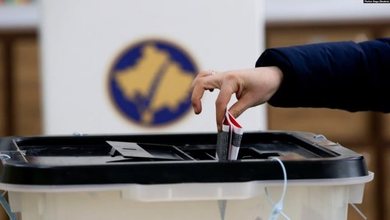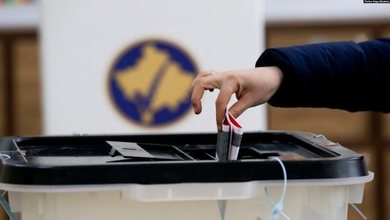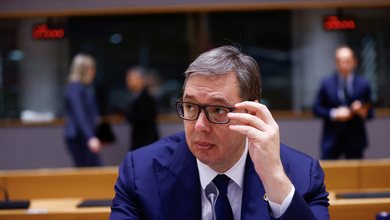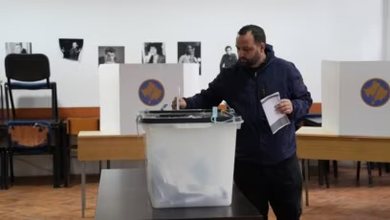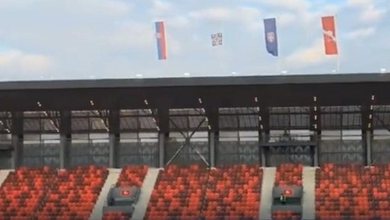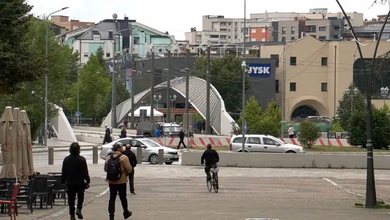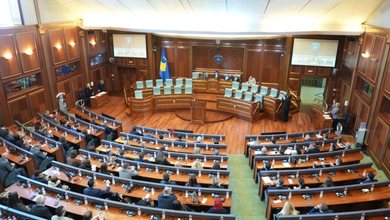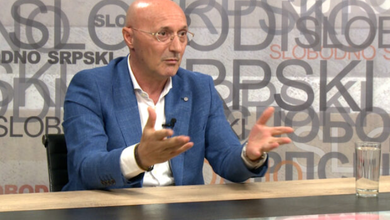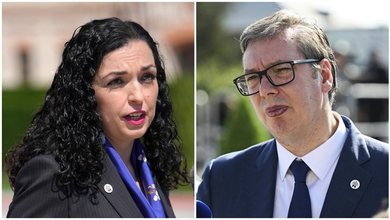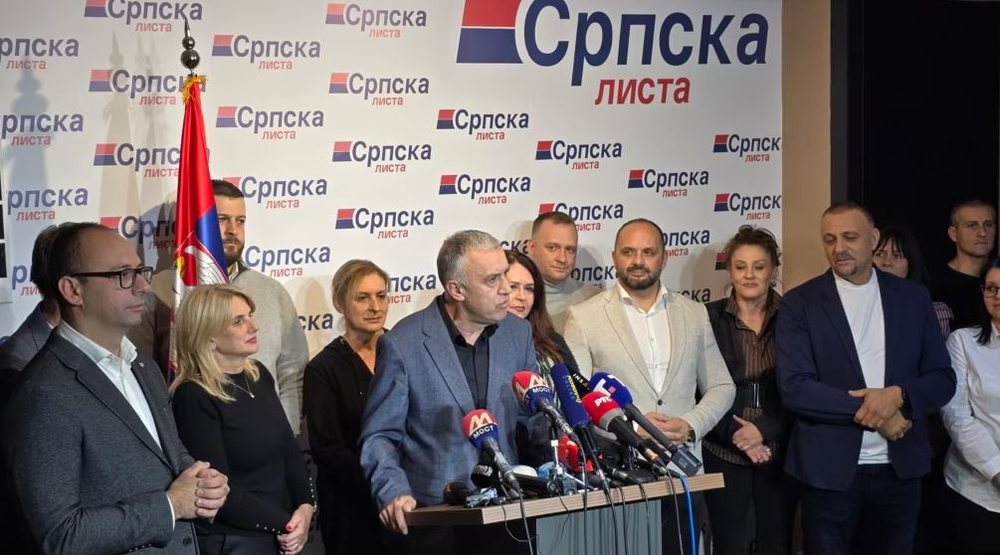
“This is a victory of the Serbian people, of Serbian unity and solidarity” – this is how the Serbian List described its victory in the first round of local elections in nine out of ten Serb-majority municipalities in Kosovo.
According to the preliminary results of the Central Election Commission, Kllokot is the only municipality with a Serb majority where the second round of voting will take place.
The same situation occurred in the 2021 local elections, when the Serbian List won the second round.
However, compared to the 2021 local elections, a decline in support for this party is observed in most municipalities with a Serb majority.
This trend is particularly noticeable in North Mitrovica, where the Serbian List received 60% of the vote in Sunday's elections. Four years ago, this party, supported by Belgrade, received about 91% of the vote, Radio Free Europe reports.
One difference this time was that Serbs in this municipality could vote for six other Serb candidates.
North Mitrovica and the three other Serb-majority municipalities in the north – Zvecan, Zubin Potok and Leposavic – have been led by Albanian mayors since May 2023, after the Serb List abandoned Kosovo institutions in protest against the country's government's decision to replace Serbian car license plates.
Serbian List results in 2021 and 2025
There are ten municipalities in Kosovo with a Serb majority: Gracanica, Štrpce, Novo Brdo, Parteš, Ranilug and Kllokot in the south, and North Mitrovica, Zvečan, Leposavic and Zubin Potok in the north.
The Serbian List has won convincingly in all electoral processes in which it has participated since its establishment in 2013.
This also happened in the elections of October 12, 2025, but in most municipalities there was a decrease in support for it, compared to 2021.
-Leposaviq: Around 70% in 2025; 97% in 2021
-Zubin Potok: Around 70% in 2025; 83% in 2021
-Zvecan: 86% in 2025; 98% in 2021
-Graçanicë: 62% in 2025; 77% in 2021
-Ranillug: 71% in 2025; 100% in 2021
-Novobrdo: 63% in 2025; 62% in 2021
-Shtërpcë: 59% in 2025; 59% in 2021
-Partesh: 89% in 2025; 75% in 2021
-Kllokot: The elections are going into the second round.
In Gracanica, for the first time, a candidate from the Albanian community participated, supported by all Albanian parties – which partially influenced the result of the Serbian List.
Belgrade-based political scientist Ognjen Gogic tells Radio Free Europe/Radio Liberty that in Sunday's local elections, Serbs in Kosovo had alternatives to the Serbian List in all municipalities - unlike previous electoral processes.
This, according to him, somewhat contributed to the decline in support for him.
As alternatives to the Serbian List in municipalities with a Serbian majority in these elections were: Nenad Rašić's Party for Freedom, Justice and Survival, Aleksandar Arsenijević's Serbian Democracy, Millija Bisevac's Serbian National Movement, Goran Marinković's Alliance of Kosovo, as well as several civic initiatives.
"New candidates have emerged... If there had been no decline in support for the Serbian List, there would have been no votes for other parties. The very fact that new groups have emerged shows that there are new thoughts, a new mood, a need for an alternative," says Gogić.
He adds that support for the Serb List in Kosovo can never be interpreted as support for the correctness of its policies, but rather as a need for Serbs to maintain power in the municipalities where they constitute the majority, as well as their relations with Belgrade.
According to preliminary data from the Central Election Commission, the Serbian List won the majority of councilors in the municipal assemblies, but other parties also secured councilor seats.
In a phone conversation on Sunday with officials of this party, which was formed with his support, Vučić said: "We succeeded, they cannot remove the Serbian name and surname."
Afterwards, at a press conference, the Serbian List thanked Vučić for the support provided.
Janjic believes that Vučić's message was, in fact, that he had won the local elections in Serb-majority municipalities in Kosovo, and that this was a signal to the international community that it could count on him.
“Is this true? Temporarily yes. At this point, Vucic should be dealing with normalizing relations [with Kosovo], to extend his rule in Serbia. He needs this card. It is extremely important,” he says.
Gogic points out that Vucic was the first to announce the results of the Serbian List for the February 9 parliamentary elections, adding that this action is aimed primarily at the domestic public in Serbia.
"He needs to show that he is winning somewhere. We have the student protests, the sanctions against NIS [Serbian Oil Industry]… and he needs to show that his policies are yielding results," says Gogic.
Speaking to Serbian Pink Television, he said that the significance of the Serbian List's victory is greater because it represents "the return of Serbs to their municipalities in northern Kosovo."
Otherwise, official Belgrade supported the Serbian List's decision to leave Kosovo's institutions in November 2022, but Serbian President Aleksandar Vučić demanded their return in September 2024. /REL/



